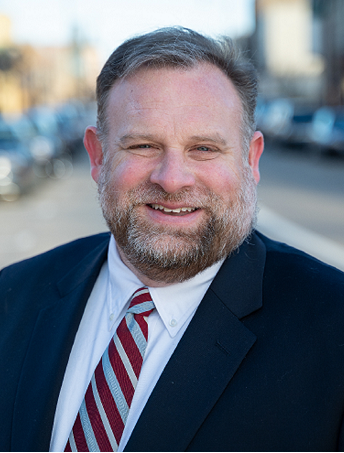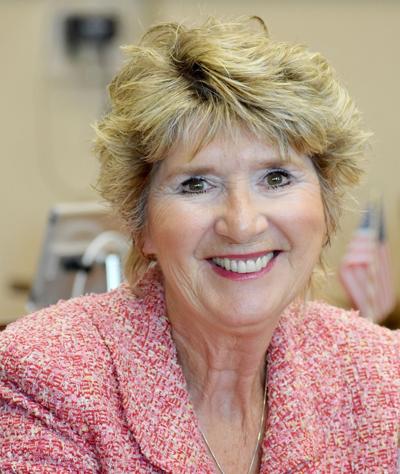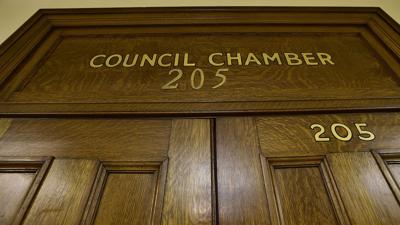Holly Gilvary
RACINE — Six alders are boycotting Common Council meetings, citing issues in the governing process that they say has created a lack of transparency.
Alders Jeff Coe, Olivia Turquoise Davis, Melissa Kaprelian, Sandy Weidner, Henry Perez and Renee Kelly announced the boycott in a news release Sept. 27.
The action comes in response to what the alders said is Mayor Cory Mason’s “persistent refusal” to place ordinances on the Common Council agenda, particularly an ordinance passed at the Aug. 8 Committee of the Whole meeting that would restore the council process to the way it was prior to changes made in 2019.
 |
| Mason |
The alders have demanded a review and revision of recent ordinance changes that they said have altered the balance of power between the executive and legislative branches of city government, and a reinstatement of Common Council’s “rightful authority” to set its own agenda and “bring matters of public concern before the body for discussion and vote,” the release said.
Alders allege improper separation of powers
In the statement, the six alders said the mayor’s office has exerted “undue control” over the council’s agenda and is therefore violating a state statute that gives city councils the authority to establish their own meeting rules.
They said changes made in 2019 to city ordinances involving council authority “improperly delegate agenda control power to the mayor and city clerk.”
Currently, city ordinance does not require agenda items to go to Common Council first before being referred to related committees, as it did prior to May 2019, according to council members.
 |
| Weidner |
Some alders argue that this causes a lack of transparency and clarity in the process and allows agenda items to get “lost in the queue,” according to Weidner.
Before the 2019 changes, all agenda items were submitted to the clerk’s office and to Common Council, rather than to the clerk’s office and to the mayor, according to Weidner. Common Council would then refer the agenda items to appropriate committees for action and discussion, such as the finance committee or the public works committee.
“Now, communications get submitted, and we don’t know what communications have been submitted,” Weidner said. “It’s in some mystical queue that I can’t find.”
She also said she believes the previous system was more time efficient, saying that most agenda items that came to the city for consideration would be resolved within a month.
City ordinance says the clerk and the mayor have 14 days from when an item is submitted for consideration to put the item on the most appropriate committee. However, more than 90 days must pass from the submittal of the item before an alder can request to refer the item if the clerk and mayor have not already assigned it to a committee.
“So nobody knows that those communications are waiting to be heard,” Weidner said.
If a submitted communication has not gone to a committee after 90 days, alders can make a direct referral to the council about the item. The council then must vote with a two-thirds majority to refer the item to a committee, according to Weidner
Council members voted 13-2 to approve the changes at the May 2019 meeting, according to meeting records. Of the alders on the board today, only Weidner voted against the ordinance changes; alders Mollie Jones, Maurice Horton, Q.A. Shakoor II, Mary Land, Coe and Perez voted in favor.
Agenda items delayed or blocked
Additionally, some boycotting alders said they believe the mayor has purposely withheld agenda items from going to council.
This includes the three agenda items that were approved at the Aug. 8 Committee of the Whole meeting, which should have been placed on the subsequent Common Council meeting’s agenda, according to Committee of the Whole Chair Alder Terry McCarthy.
McCarthy said Mason requested that the items passed at the Aug. 8 meeting go to the Executive Committee before going to Common Council, which McCarthy said has not been the practice historically.
McCarthy told council members that he has tried twice to get the agenda items placed on an Executive Committee agenda, but to no avail.
“That was what kind of … in my opinion, pushed the group of folks to boycott meetings,” McCarthy said. “I’ve been working with the mayor to get this onto an agenda — either the Executive Committee, where he wants it to happen, or back to the Common Council — so they can actually vote on it.”
 |
| Kaprelian |
A release sent Tuesday confirmed the six members’ boycott would take effect for the Oct. 1 meeting.
Weidner said they will not end the boycott until the items approved at the Aug. 8 Committee of the Whole meeting are put on a Common Council agenda for consideration.
Still, Weidner said she is concerned about the boycott because of its timing —the mayor is scheduled to present the city’s 2025 budget at the end of October, and the council has until around mid-November to pass the budget.
“I’m very concerned,” Weidner said. “This is an extreme measure to take, but … we literally are hogtied.”
Alternate views on the boycott
McCarthy said he’s not interested in joining the boycott and believes negotiation between council members and the mayor is a better action to take.
 |
| McCarthy |
“While I share the goals of getting those ordinance changes in place, I don’t support their method of going about it,” McCarthy said.
Mason said in a statement Tuesday that he welcomes partnership and collaboration from fellow elected leaders, but said he also knows there will be times when people “who all care about our community” might disagree.
He added that the way they resolve those differences matters.
“Instead of trying to find solutions, several members of the Common Council have decided they won’t show up and do their jobs, even if it puts the city at risk,” Mason said. “That’s disrespectful to our community and also to their colleagues who are prepared to do the jobs they were elected to do. I hope they’ll set aside the political stunts and join the rest of us in conducting the people’s business.”
Restoring balance
Kaprelian said that the boycott ultimately is about restoring a balance in government.
“This is government. This is checks and balances, why we’re getting elected to do this job,” she said. “We need to align our practices with the state law on council authority, and the current (city) system blocks important issues from reaching the full council.”
In the meantime, Kaprelian said she and other alders are continuing to communicate with their constituents, many of whom she said support the boycott.
“I would say 99% of the communications that have come my and other alders who have come aboard’s way have all been in support,” Kaprelian said. “That makes you just know that you are doing the right thing, and it lets me know that (constituents) understand the magnitude of the problem.
“Without this balance of government, we have lost our ability to legislate, which means we have lost the voice of our constituents, and that just feels fundamentally wrong to me.”






No comments:
Post a Comment